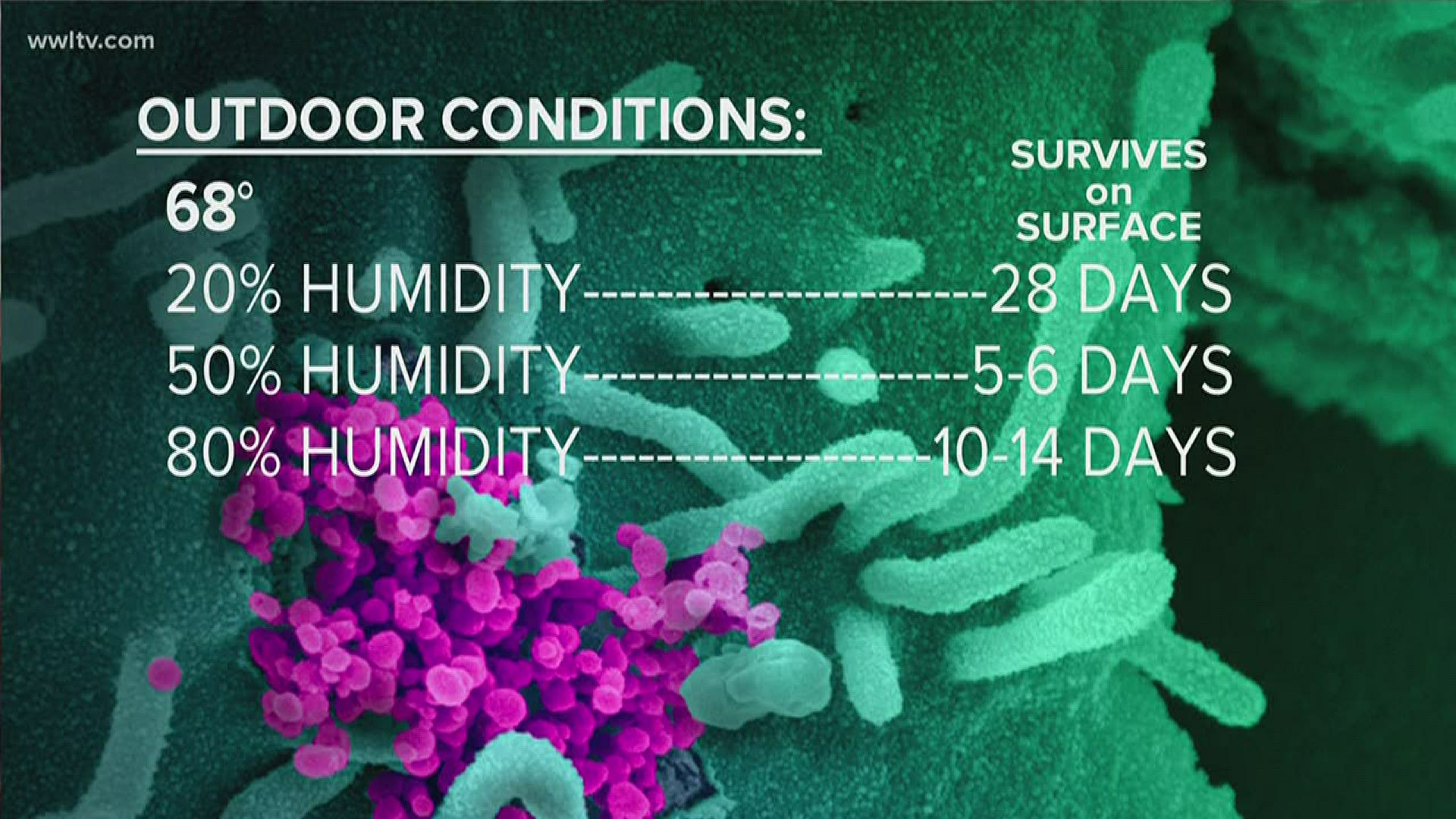NEW ORLEANS —
A lot of us have been wondering if the hot, humid weather coming this summer will mean fewer coronavirus infections. We see it with the flu, so will we see it with this pandemic?
Research about how viruses survive on surfaces and in the air may shed some light.
At a temperature of 39.2 degrees
20% relative humidity survives on surfaces at least 28 days
50% relative humidity survives on surfaces at least 28 days
80% relative humidity survives on surfaces at least 28 days
According to a study following the SARS-CoV-1 pandemic, published in Applied and Environmental Microbiology, a journal published by the American Society for Microbiology, look at what happens to other similar viruses when it’s cold outside in the upper 30s. No matter what the humidity, the viruses survived on a surface for at least a month. So it’s kind of like food lasting longer in a refrigerator.
Temperature of 68 degrees
20% relative humidity survives on surfaces at least 28 days
50% relative humidity survives on surface 5-6 days so only last on surfaces about ⅕ as long
80% relative humidity survives on surfaces between 10 or 14 days
Now, look what happens on a day like today with mild, pleasant temperatures. Humidity makes a difference. At low relative humidity, the virus still survives at least a month on a surface. At 50 percent, it’s only viable for less than a week. But, at high humidity, it goes back up, surviving for nearly two weeks.
Temperature of 104 degrees
20% relative humidity survives on surface 120 hours = 5 days
50% relative humidity survives on surface 12-24 hours = ½-1 day
80% relative humidity survives on surface 6 hours = ¼ day
Now let’s go to conditions like a hot, humid New Orleans summer. The higher the humidity the quicker the virus dies on surfaces, going from days of survival to hours.
Now let's turn to some new information from the National Academies of Sciences Engineering and Medicine.
Local researcher Dr. Chad Roy of the Tulane Primate Research Center shared some preliminary findings about how this SARS-CoV-2 survives in the air, not surfaces. That’s important since you can contract this new coronavirus when someone with it talks, coughs or sneezes. Dr. Roy reports, surprisingly, that this virus has a longer half-life than flu, SARS-CoV-1, and tuberculosis. The report calls the result concerning.
So will this new virus be seasonal and be reduced in the summer? Well, studies are conflicting. And even though other viruses may not survive as easily in higher temperatures and humidity, for SARS-CoV-2 (COVID-19) we don't know if summer weather will mean fewer infections. Why? Well, three reasons. First, we don’t know how many people recovered and have immunity, meaning that fewer people would get sick. Second, two other coronaviruses that caused serious illness, SARS-CoV-1 and MERS, appear not to be seasonal. And third, keep in mind that we spend summer in the cool, low humidity, air conditioning, mimicking conditions where the virus may live longer on surfaces.
And even with this preliminary science, this virus is so new, we still don’t know for certain how it will cycle through our southeast Louisiana seasons.
► Get breaking news from your neighborhood delivered directly to you by downloading the FREE WWL-TV News app now in the IOS App Store or Google Play.

